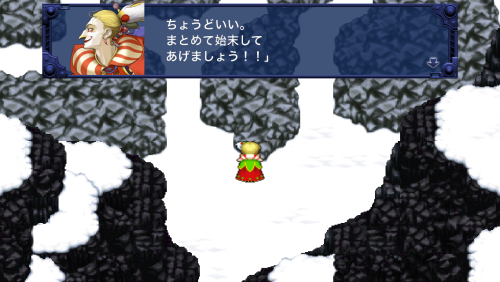When I first read Hard-boiled Wonderland and the End of the World, I preferred the odd-numbered chapters with the data agent. I visited a few colleges that summer as I was reading it, and because of the book I was convinced I wanted to study cognitive neuroscience. Obviously I was a moron. What I really wanted was to live in the world of the data agent. Back then the End of the World chapters were speed bumps. I’m a slow reader, but I tore through those chapters to get on with the longer, more convoluted parts about memory, INKlings, and the chubby girl in pink.
Now it feels like the opposite, most likely because I’m reading in Japanese. It takes me forever to read through the odd-numbered chapters only to reveal another short episode in the End of the World, which I really savor. Also I’ve realized the End of the World chapters are much stronger. They’re lean compared to Murakami’s normal style, but just as tense and suspenseful and even more mysterious. It’s almost like a totally different author wrote them.
Chapter 23 “Holes, Leeches, Tower” is another massive speed bump chapter in the data agent Watashi’s world, and Birnbaum really pares down the Japanese throughout, rendering only the absolute necessities to get Murakami’s point across. It feels like he’s only writing three sentences for every five in Japanese. It’s a generous translation, though, and very funny.
Watashi and the Girl in Pink spend the chapter running through the underground area more, this time away from a tidal wave of water, and then climbing a massive altar. As in previous chapters, Watashi wants nothing to do with his circumstances, so he ends up daydreaming quite a bit. Birnbaum does a fantastic job of bringing out this element.
Most of these changes are not worth looking at closely, but Murakami does make one cut between the original and the Collected Works edition. Birnbaum, however, includes the cut section in the English translation. So this should show us something about Murakami’s work as an editor. Here’s the passage in Birnbaum’s version:
The next thing I realized was that my body was missing from the waist down. I reassessed the situation. My lower half was there, just unable to feel anything. I shut my eyes and concentrated. Trying to resurrect sensations below the belt reminded me of trying to get an erection. The effort of forcing energy into a vacuum.
So here I was, thinking about my friendly librarian with the gastric dilation and the whole bedroom fiasco. That’s where everything began going wrong, it now struck me. Still, getting a penis to erect itself is not the sole purpose of life. That much I understood when I read Stendhal’s Charterhouse of Parma years ago.
My lower half seemed to be stuck in some halfway strait. Or cantilevered out over empty space or…dangling off the edge of the rock slab. It was only my upper half that prevented me from falling. That’s why my hands were clinging to the rope so desperately. (232)
It’s clear that Birnbaum’s translation is clearly pretty slim without even looking at the original, but here it is with my re-translation:
私の下半身はもうなくなっているのかもしれない、と思った。地面に投げ出されたショックでちょうど傷口のあたりから私の体はふたつにちぎれ、下半身がどこかに吹きとんでしまったのだ。私の脚―と私は思った―私の爪先、私の腹、私のペニス、私の睾丸、私の……、しかしどう考えてもそれは不自然だった。下半身を全部失くしていたとしたら、私の感じる痛みはこの程度で済むわけがないのだ。
私はもっと冷静に状況を確認するべく試みることにした。私の下半身はちゃんと存在するのだ。それはただ何かを感じることのできない状況下にあるだけなのだ。私はしっかりと目を閉じて波のようにあとからあとから押し寄せてくる頭の痛みをやりすごし、神経を下半身に集中した。存在しないかのように感じられる下半身に神経を集中しようとする努力は、なんだか勃起しないペニスを勃起させようとする努力に似ているような気がした。それは何もない空間に力を押しこめているようなものなのだ。
私はそうしながら図書館で働いている髪の長い胃拡張の女の子のことを考えていた。やれやれ、なんだって私は彼女とベッドに入ったときにうまく勃起することができなかったのだろう、と私はまた思った。あのあたりからすべての調子が狂いはじめたのだ。しかしいつまでもそんなことを考えているわかにもいかなかった。ペニスを有効に勃起させることだけが人生の目的ではないのだ。それはずっと昔にスタンダールの『パルムの僧院』を読んだときに私が感じたことでもあった。私は勃起のことを頭の中から追い払った。
何はともあれ私の下半身は何かしら中途半端な状況に置かれているのだ、と私は確認した。たとえば宙ぶらりになっているような……そう、私の下半身は岩盤の向う側の空間にぶらさがり、私の上半身がそれが落下するのをかろうじて阻止しているのだ。そして私の両手はそのためにしっかりとロープを握りしめているのだ。31-32
Maybe my lower body is gone, I thought. The shock from being thrown to the ground must’ve torn my body in two right around my wound, and my lower half was blown off. My legs, I thought, my toes, my stomach, my penis, my testicles, my… but the more I thought about it, it just didn’t seem right. If I’d lost all of my lower body, I would be in a lot more pain than I was right now.
I tried to reassess the situation with a level head. My lower half still existed. It was just in a state of not being able to feel anything. I sealed my eyes shut, fought off the never-ending waves of pain that surged in my head, and focused on my lower body. I realized that trying to focus on a lower body that felt like it didn’t exist was somewhat similar to trying to force a penis that wouldn’t get hard into an erection. It was like trying to put force into a space with nothing in it.
In the process, I remembered the girl with long hair and gastric dilation who worked at the library. That went spectacularly, I thought. For whatever reason I’d been unable to get an erection the moment I got into bed with her. That was right around when everything started to go off the rails. But I couldn’t keep thinking about it. Being able to successfully produce erections isn’t the only reason for living. That’s something I’d realized when I read Stendhal’s The Charterhouse of Parma ages ago. I cleared my mind of hard-ons.
At any rate, I managed to confirm that my lower body had been placed in some sort of halfway state. For example, maybe it was dangling in air or… That was it. My lower body was dangling in the air over the side of a cliff, and my upper body was only just barely preventing me from falling. And that’s why my hands had a firm grip on a rope.
Ugh. My translation feels ugly and bloated and 直訳 compared with Birnbaum’s.
For the Complete Works edition (pages 333-334), Murakami chose to cut the entire third paragraph (highlighted in red) for some reason. It’s the only cut he chose to make for 25 pages (30 in the paperback)! What gives? There’s dozens of other lines that could have gone, and—trust me—Birnbaum finds them. There are entire passages that get dismissed in favor of moving the narrative along.
Was it the Stendhal reference? Or the Librarian? It can’t be the erections—he kept a few of those. I’m baffled by this one.
What say ye, reader?


